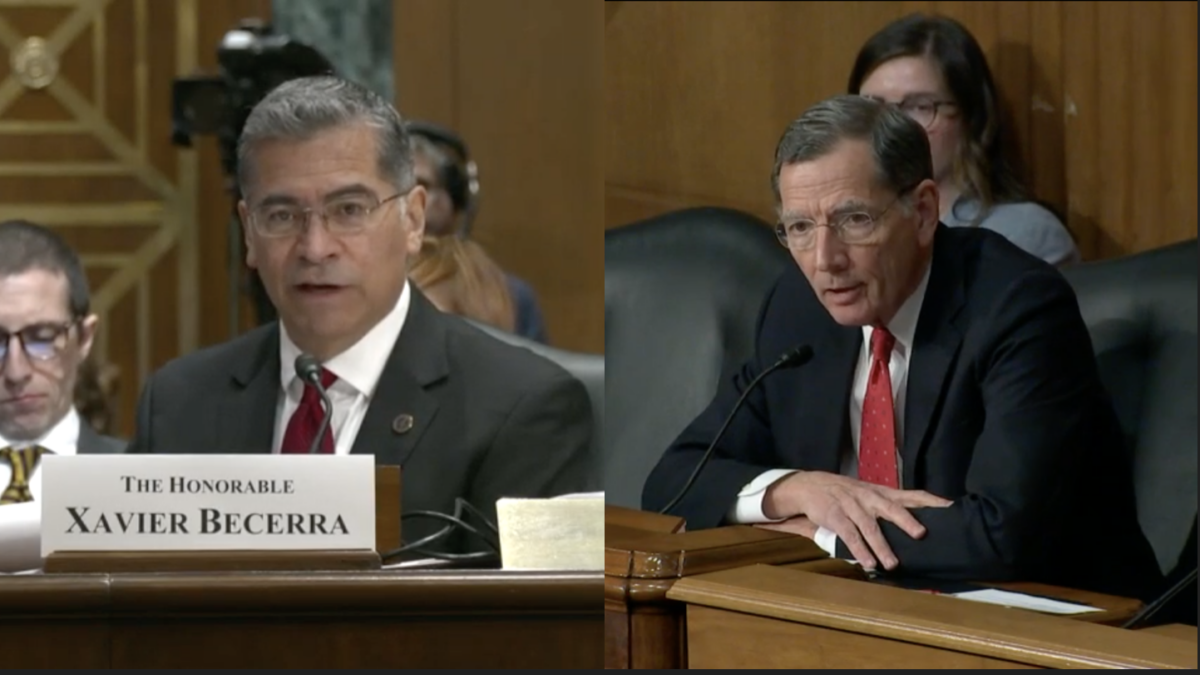
Anyone with experience running a business knows hiring decisions are among the most important and consequential judgments an employer makes. Those who assess potential employees typically engage in two broad inquiries about every prospective hire: Does the applicant have the desired technical qualifications, and does he or she have the social and cultural traits that fit our organization?
Such concerns inevitably arise when trying to hire the best person for any job. Yet such rational considerations receive regular pushback in a closely related realm: our nation’s immigration policy.
During a recent debate between Democratic presidential candidates, Sen. Cory Booker accused former vice president Joe Biden of pitting immigrants against each other when Biden had the temerity to suggest that we give priority to immigrants with PhDs. I suspect, however, that Biden aptly views immigration policy as zero-sum; it’s about choosing the best applicants for a finite number of very valuable positions. That’s certainly my view.
You Can’t Pick Them All, So Choose Only The Best
Law firms hire based on applicant qualifications. It’s why, for instance, they employ those with law degrees to represent clients. Similarly, medical practices hire those with medical degrees to be doctors, graduate schools hire those with graduate degrees to be professors, and so on. Employers are gatekeepers. They hire based on their needs, not the needs or desires of those who want jobs.
Prospective employees with many attractive traits are routinely passed over. If an applicant shows signs of being hard-working, caring, and thoughtful, but doesn’t possess skills the employer needs, he probably won’t get the job. The hospital administrator tasked with hiring more nurses will be unimpressed by even the strongest resume from a certified public accountant.
The Society for Human Resource Management (SHRM) stresses the second type of inquiry—the question of social and cultural fit in hiring—as follows:
The central role that HR [human resources] plays in helping an organization capitalize on its culture is in hiring. HR has the opportunity to select people who fit the way the organization operates. Traditionally, hiring focuses primarily on an applicant’s skills, but when a hire’s personality also fits with the organization’s culture, the employee will be more likely to deliver superior performance.
SHRM cautions that “too much [cultural conformity] can result in groupthink and complacency,” although I suspect that this concern is under-weighted due to the confirmation bias that leads management to hire those who reinforce already-made decisions. Regardless of the proper scope of cultural fit in industry hiring, it too is routine.
Some Traits Are Simply a Better Fit For America
When technical qualifications and cultural fit are suggested as elements of immigration policy, adversarial reactions far surpass the typical reflexive and groundless accusations of racism routinely hurled against conservatives. Indeed, the hysteria in such circumstances is reminiscent of the scene in “Raiders of the Lost Ark” in which the Ark of the Covenant is opened, and the faces of Nazis melt right off.
We should be asking of applicants is whether they have a pluralist, tolerant view of others and support individual freedom and self-representative values. This would certainly hard to measure, as well as susceptible to mismanagement and fraud, but how this could be accomplished should be investigated and considered.
Such a policy would not mean that immigrants must come from societies embodying these ideals; one reason immigrants might be seeking entrance to the United States in the first place is disagreement with their home countries’ cultures, politics, and institutions. Many entrepreneurial, free-market-embracing immigrants from communist China and Vietnam are great examples of this phenomenon. Nonetheless, whether an applicant shares are our traditional values and mores is an appropriate area of inquiry.
Our Immigration Policy Must Carefully Define Refugees
While technical qualifications and cultural fit are legitimate considerations in the realm of immigration policy, one additional concern is the laudable and longstanding U.S. policy of accepting refugees. Immigration policy must certainly be viewed in a different light than employment overall, but we must be careful that we don’t define “refugee” so broadly that it is disproportionally weighted against all the other values we should consider.
A refugee is a person who has suffered persecution, or has a well-founded fear of persecution, based on race, religion, nationality, membership in a particular social group, or political opinion. “Persecution” is extreme behavior inflicting significant harm upon those who fall into one of the protected categories.
While fully defining the term in advance is impossible, we know it doesn’t apply to those who seek better economic opportunities or who flee crime and poverty. Indeed, some applicants whose primary concerns are economic hardship or political instability come from countries with lower crime or poverty rates than the most depressed environments within the United States today.
We should ask if applicants fit the precise definition of “refugee.” If so, we will need to evaluate the appropriate role for the United States in admitting refugees relative to other countries doing the same. Just because a refugee seeks asylum doesn’t mean that he gets to dictate the specific country of his haven. In many cases, several nations may be willing to accept a given refugee. Through prudent use of diplomacy, we must ensure that we don’t bear an unreasonable burden in resettling refugees.
The film “Midnight Cowboy” begins with Joe Buck’s decision to leave rural Texas to pursue opportunities in New York City. Buck is many things, but he isn’t a refugee. We cannot have a standard that allows immigrants to enter our country on the claim of economic or social refugee status if they could land in a city worse than from where they came—not because it’s unfair, but because it entirely undermines the claim of refugee status.
Immigrants Should Add to the Country, Not the Opposite
Another thing to consider is whether a potential immigrant addresses an employment or social need. Will the immigrant increase national wealth or be a net drain on the social welfare system? If all everything else is equal, someone who adds economic value is better than an immigrant who does not.
I can hear the accusations of heartlessness already: What about the poor child who can only get life-saving surgery in the United States? To that, I reply we already have citizens with untreated illnesses. A better question is: Who is going to pay for the new entrants, and will they take away from resources that could have gone to American citizens who need social services?
Charity to foreigners may be all well and good, but it’s not the role of our government to force it on taxpayers. Individuals can decide whether they want to contribute their time or money to organizations such as Doctors Without Borders without government compulsion. Taxpayers don’t need lay priests mandating what amounts to de facto secular international tithing.
We Must End ‘Chain Migration’ and the Diversity Lottery
It follows that we should abandon chain migration (also known as family reunification) as well as the diversity visa lottery. Under chain migration, those who already immigrated to the United States can put their family members ahead of others seeking entrance. The last in the door shouldn’t get to man the gate.
The diversity visa lottery is even more baffling. Its entire premise is based on the notion that we need certain levels of immigrants based on national origin—which is both ridiculous and racist. We should judge immigrants on the factors described above, not in which country they happened to be born.
No doubt we’ll get folks from all over the world. If there happen to be more hard-working, democracy-loving applicants from Senegal than St. Lucia, so be it. Immigration policy other than refugee assistance should be about improving the United States. As such, it is wholly legitimate to make decisions about the future of the country based on the interests of those who are already here.
Ultimately, even refugee considerations should inevitably be limited by practical realities. To paraphrase Justice Jackson: our freedom-loving values aren’t a suicide pact.









